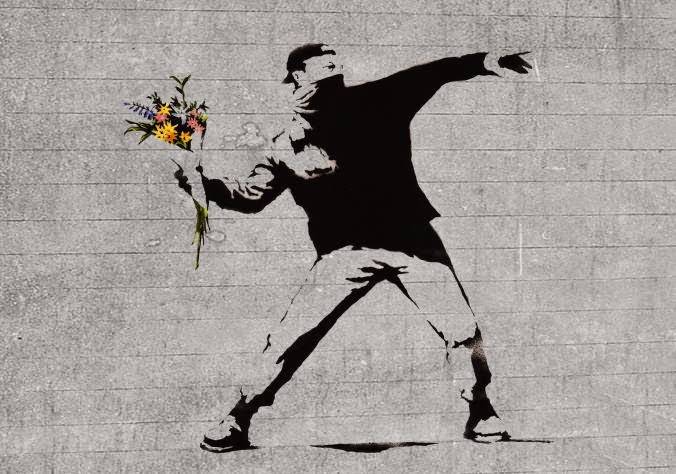Slots for Thoughts, and Why Faith Makes Politics Stupid
With so many blogs, you'd think I'd no need to start another, and yet...
This one is for writing that addresses political and intellectual debates unrelated to education. So here we go.
I was just reading a blog by the Syrian author Amarji that got me thinking about the role of religion in politics, not just in the US, but in regions of the world where religion is much more powerful force than most Americans really understand. Amarji posted a very elaborate and carefully reasoned analysis of the victory of Hamas over Fatah. Just incidentally, I think it's ironic that Fatah is in turmoil AFTER the election, when a good healthy purge of its crooked members might have convinced voters that they were serious about cleaning up their act.
Amarji's post demonstrated just how complex the situation in the Mideast is (and always has been) and why the Mideast is the Balkans of our time in a global economy dependent on oil. A quick look at how the Bush administration interprets the situation in the Mideast to the American public shows a series of gross oversimplifications. We're not fighting a bunch of different groups with different political goals; instead, its a Global War on Terrorism. We're not going to work with Hamas because they are a Terrorist Organization. We don't condone torture or spy on Americans in violation of legal statute, we are doing everything necessary to Keep Americans Safe.
But the Bush administration is just doing what people of faith do all the time when interpreting world events: they look for good guys (people who share their faith or some approximation of it) and bad guys (people of another or no faith). If the faith-based criterion doesn't work, religious groups go on to use related criteria, but in the end the politics of religions is always reductive.
Since religious people KNOW that they are in the right, once in power they feel justified in using methods they would otherwise never condone (torture, rendition, spying) in others. Why is Hamas a Terrorist Organization? Because they kill innocent people in pursuit of their political goals. Yet the current administration admits the necessity of doing the very same thing, and acknowledge that they do so. Both were freely elected. But they both divide the world not into people who use immoral methods and those that don't; the Bush administration AND Hamas divide the world into those that are against them and those that aren't.
Ironically, the religious right in the US has a strong political place in the public forum. It's ironic because it is precisely that the public forum in the US is so secular that the religious right is able to make itself not only heard, but able to wield such great political influence in a party with so many diverse political views represented in it. That Bush misleads the Christian Right while pursuing another agenda is almost a liberal shibboleth now. On the Left, the GOP is viewed as a creature of money interests and the Christian Right, but that oversimplifies things. There are only two political parties with large memberships in the US, so they must represent a broad range of political opinions.
But the unifying themes of the Republican Party are of necessity simple precisely because these themes must appeal to the religious right, which has a very simple vision of the world. Criticisms of the Democrats for not getting their message out overlook the fact that the Democrats are no longer speaking to any one group in the party that has such a grossly reductive worldview. The Democrats have LOTS of groups with reductive worldviews (pro-Choice groups, animal rights groups, Greens, and so on); it's just that no one group is as dominant in their party as the religious right is in the GOP. They used to have the unions representing a huge swath of members, and the labor movement helped the Democratic Party by giving it a large part of its membership that was as well-organized as the Christian right is today. Those days are gone.
The broader point of which the Christian right is just one illustration is illustrated all over the world wherever democracies have political parties dominated by religious groups. Hindu nationalism is one example; the recent resurgence in Canada of the Conservatives is another, although the Christian right in Canada is not as dominant in their politics or culture as in the US. And Hamas is just one more.
Amarji's post expressed hopes that Hamas would focus on internal problems in Palestine, and that over time they might grow moderate. But to keep a strong hold on a religious group within the party (or those that just voted it in out of disgust with Fatah) Hamas will certainly want to keep its supporters united; and what better way than to focus on how the infidels keep screwing the faithful?
I'm not an atheist attacking religion; I just want to point out that secularism has been GOOD for democracy. Materialism is also GOOD for democracy; when people are busy trying to make a decent living, they're less likely to be fighting each other over differing belief systems. When people of faith recognize that civil society is about allowing differing view points to work freely in the public sphere and to compete within an open market-based economy, they acknowledge these truths.
I don't want the Kingdom of Heaven on earth any more than the American founding fathers did; I'll settle for a society that's messy and often wrong, but in which the complexities of the world are acknowledged, if not by all political leaders, then by enough people in politics that the public is constantly misled to think one side is right and good, and any others are therefore united against them.

